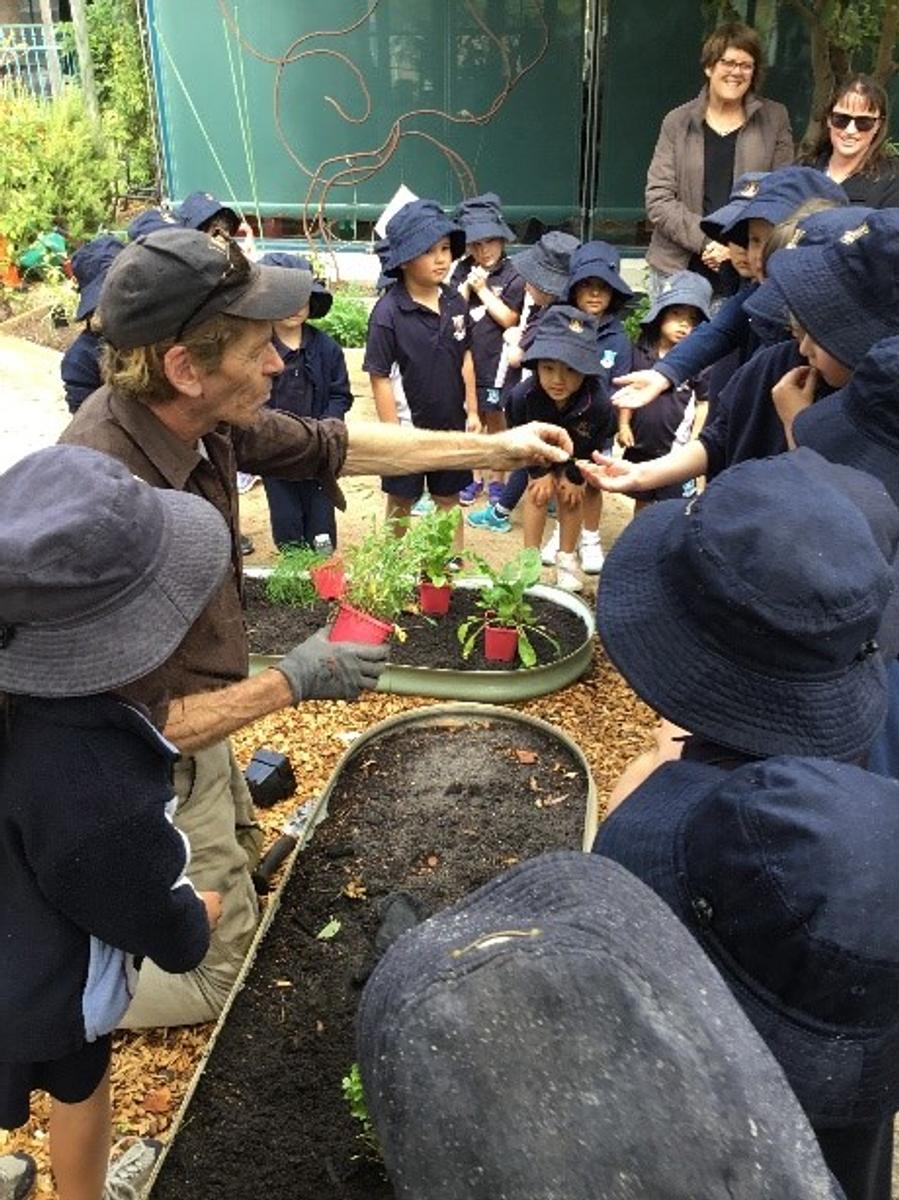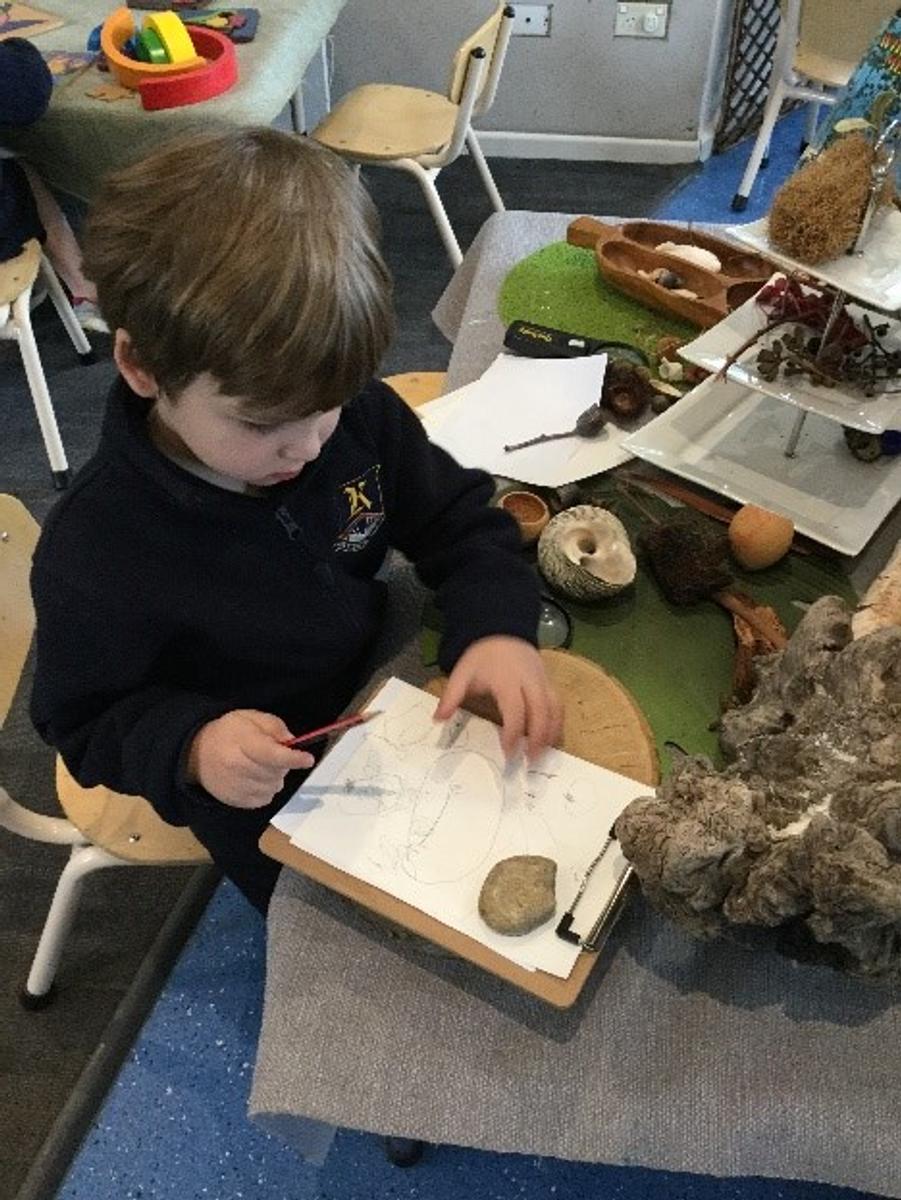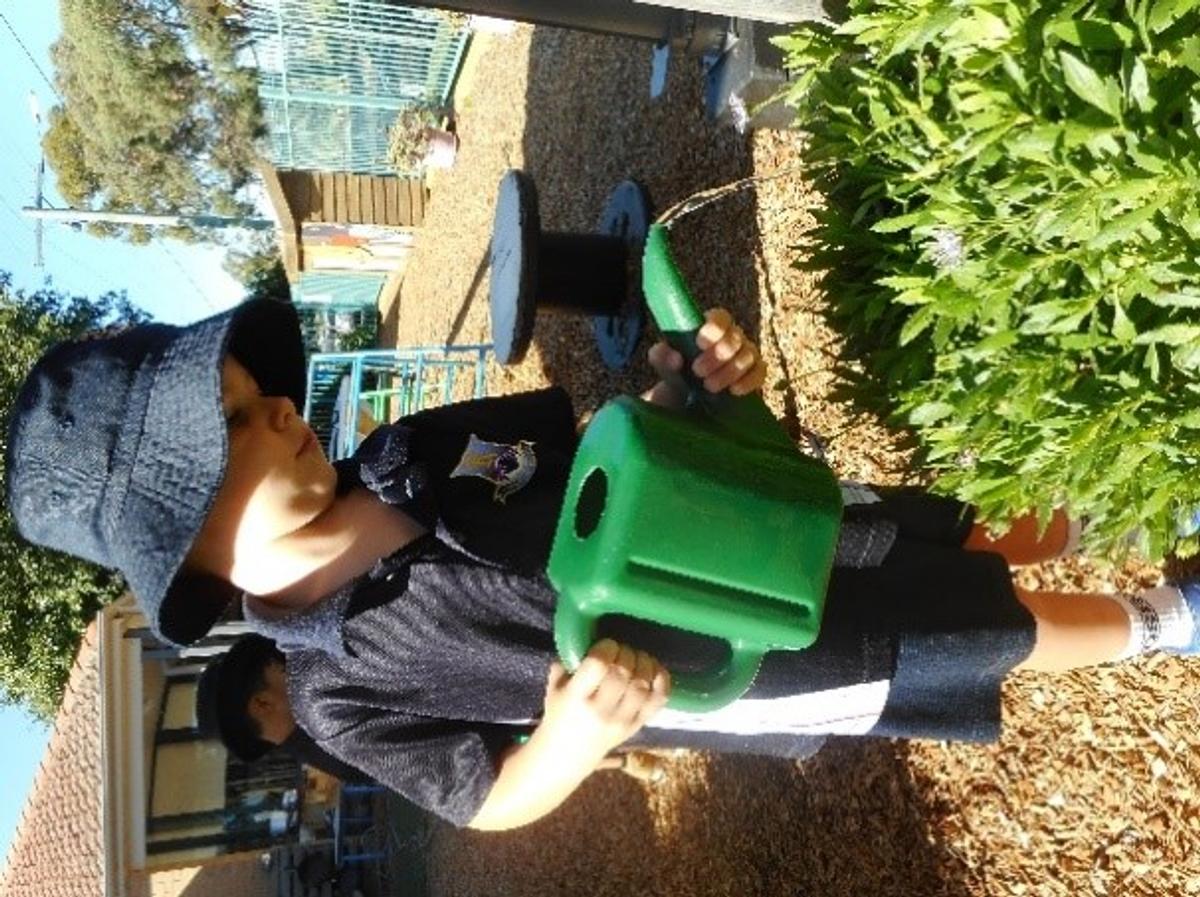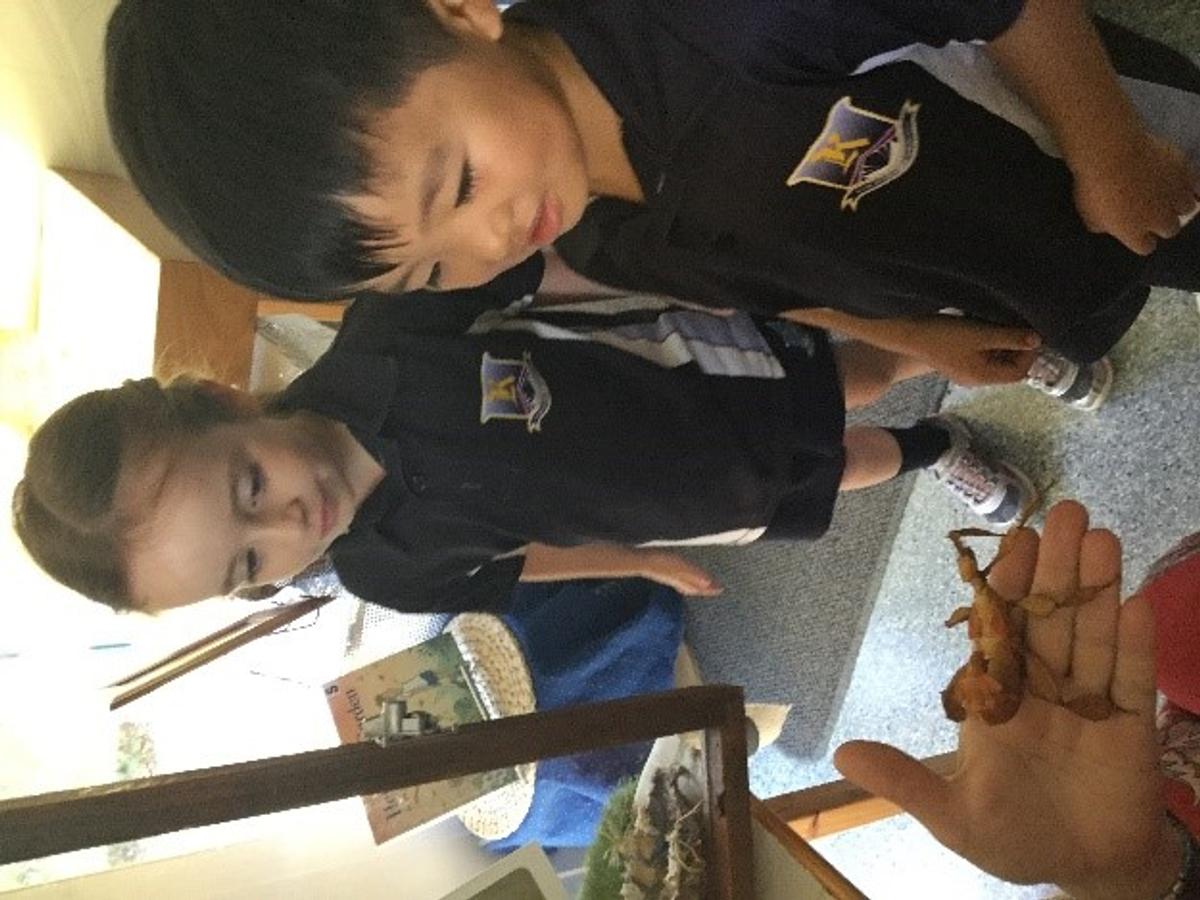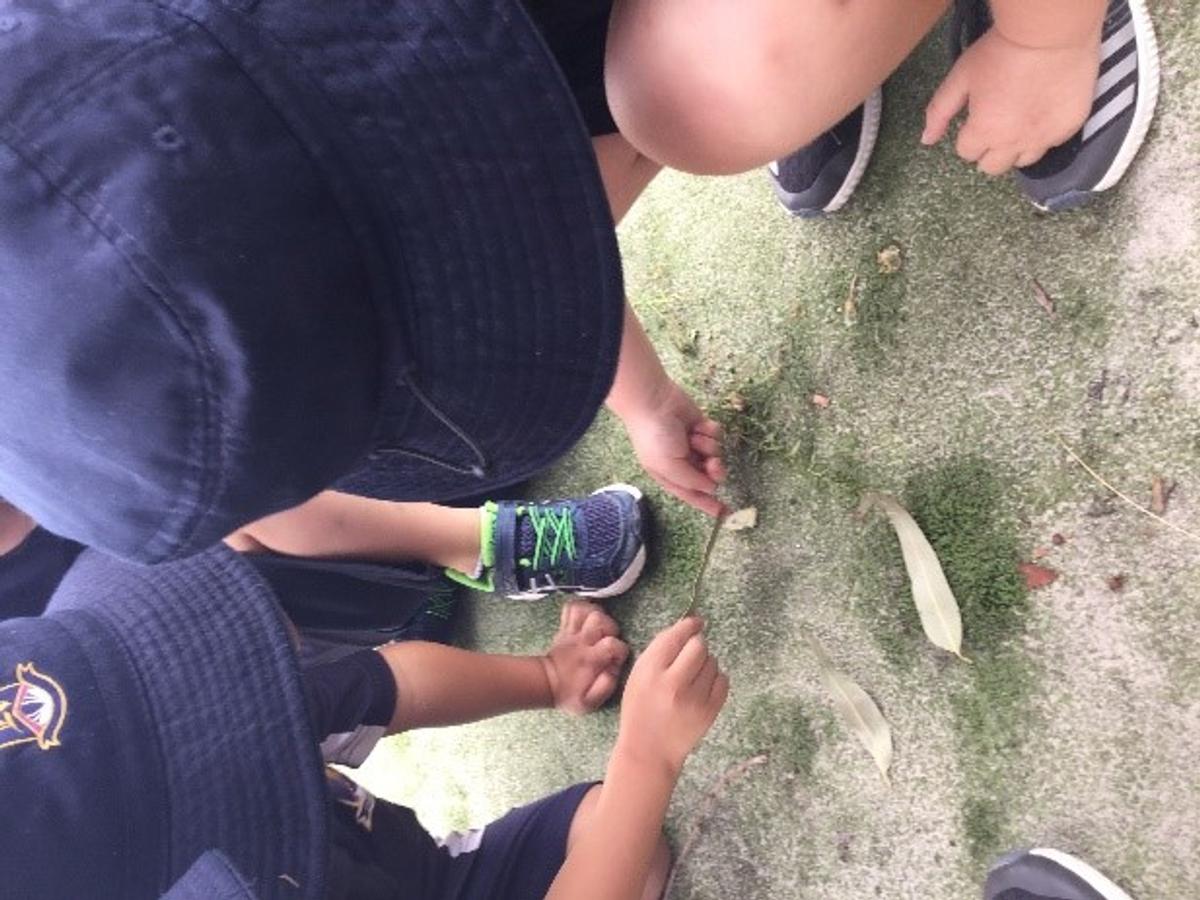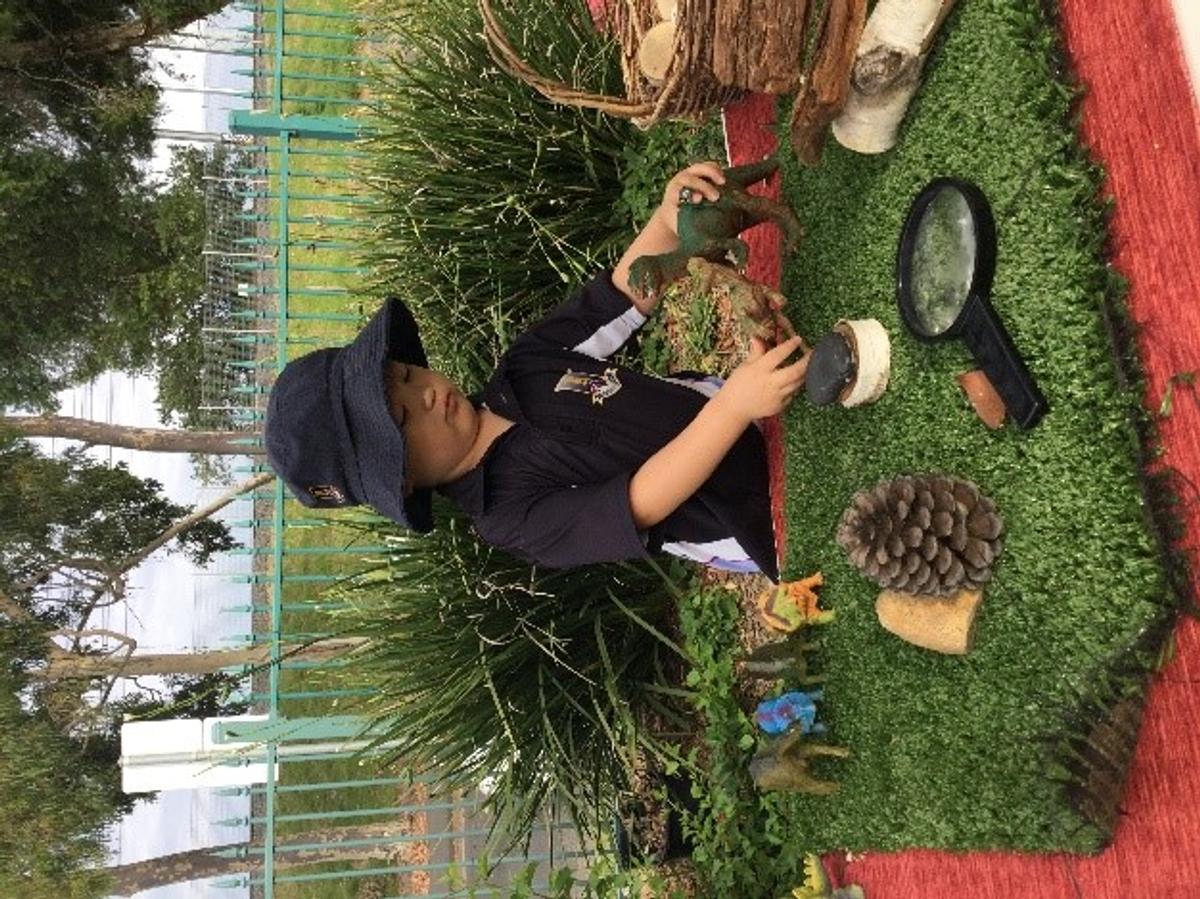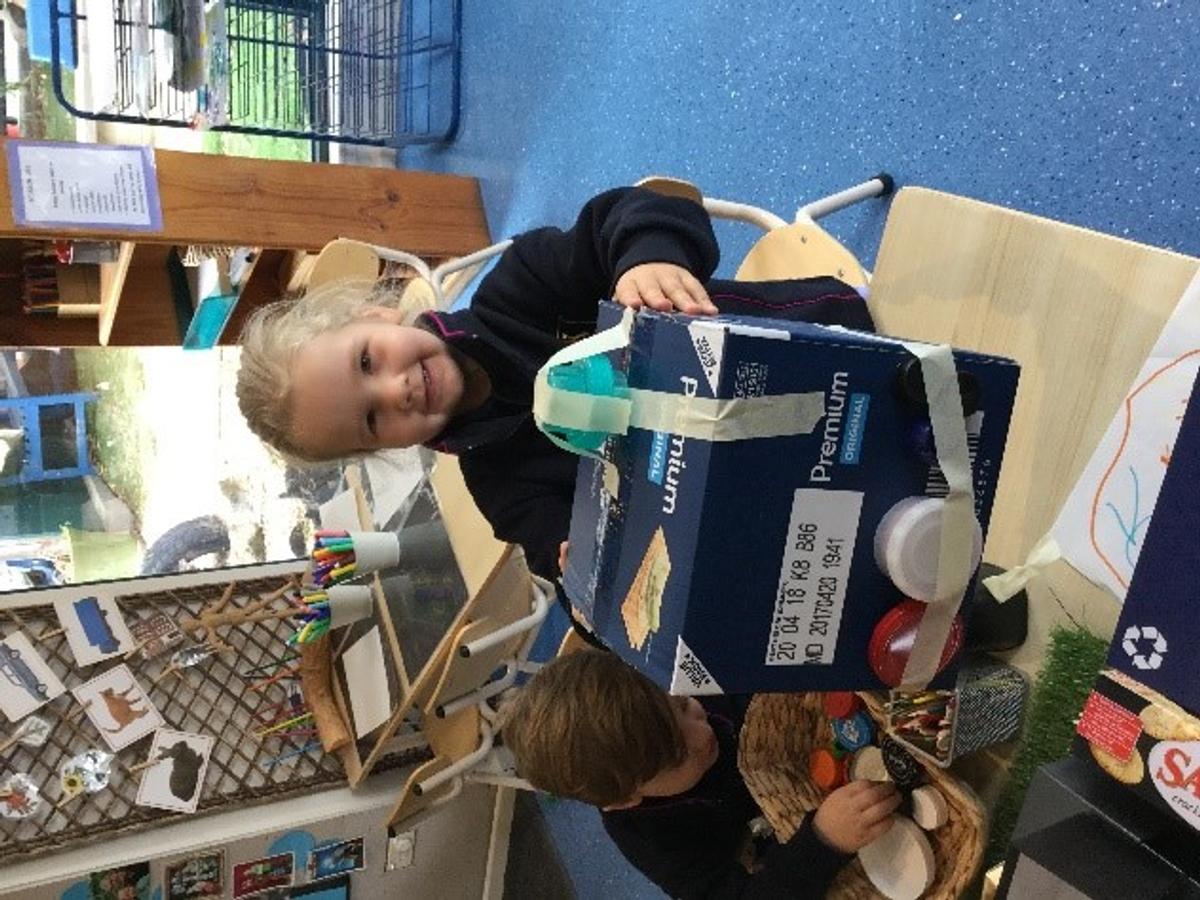Looking to our Future - Sustainability in the ELC
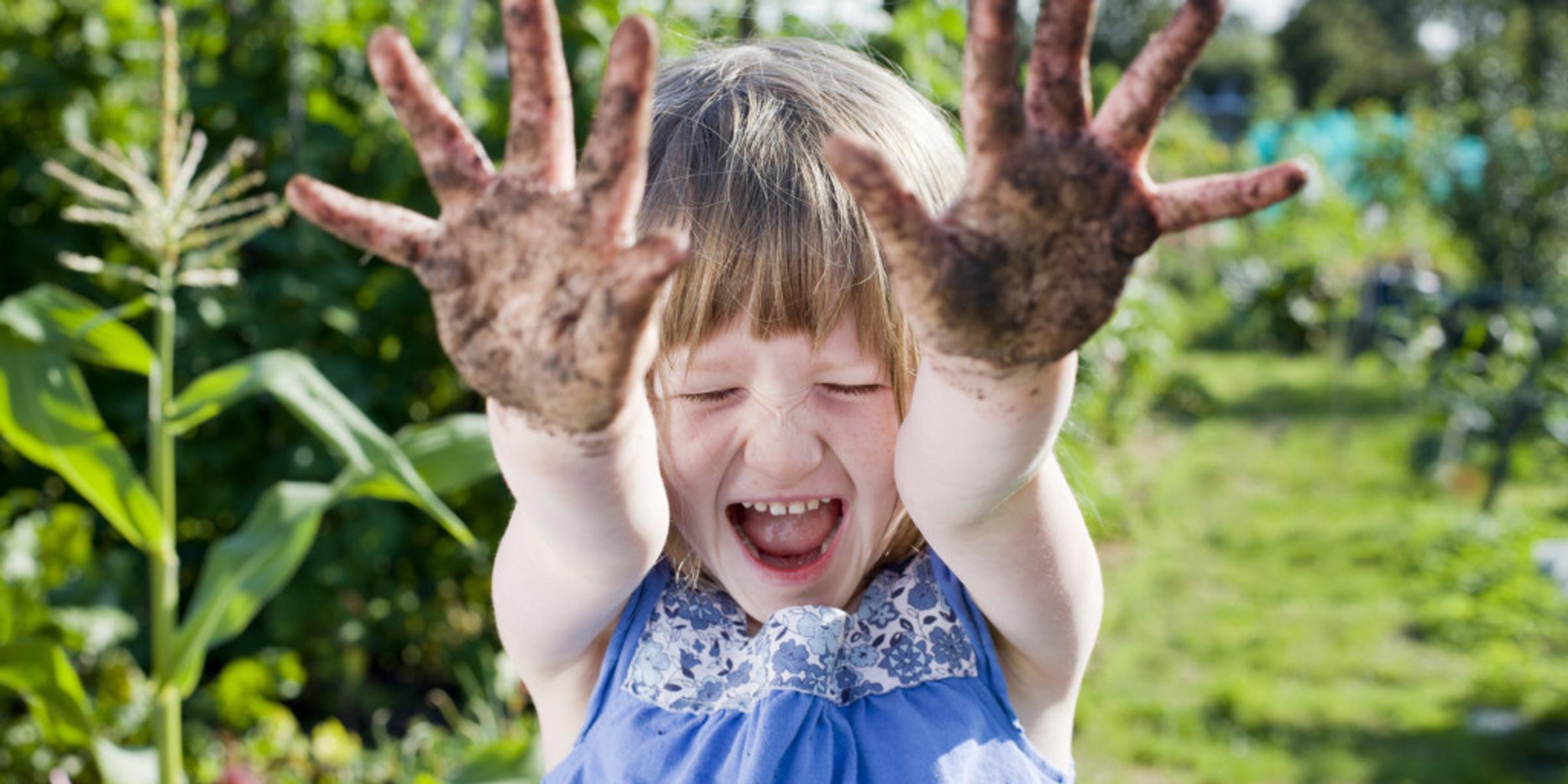
Lyn Pewtress, Early Learning Centre Coordinator
Understanding Sustainability in Early Childhood
Sustainability in education is often understood in terms of environmental sustainability— minimising consumption, reducing waste, protecting and conserving nature. While these are all important aspects of being sustainable, it can also be considered more broadly; thinking about our impact on the lives of future generations. Today’s young children represent the first of those future generations and this makes it important for us, as educators, to help them realise the significance of caring for and protecting their environment.
If we want children to flourish, to become truly empowered, then let us allow them to love the earth before we ask them to save it. Perhaps this is what Thoreau had in mind when he said, 'the more slowly trees grow at first, the sounder they are at the core', and I think the same is true of human beings.
- David Sobel, Beyond Ecophobia (1998)
Why Should Early Childhood Services Focus on Sustainability?
Our legislature and guiding documents have reflected this responsibility in the National Quality Standards for early childhood services, which asks that each service take ‘an active role in caring for its environment and contributes to a sustainable future’ (NQS Standard 3). More specifically, ‘the service cares for the environment and supports children to become environmentally responsible’ (Element 3.2.3).
Practising sustainability empowers children to construct knowledge, explore values and develop an appreciation of the environment and its relationship to their world. This lays the foundations for an environmentally responsible adult.
Current sustainable practices in our Kilvington ELC
- Development of a seasonal vegie garden
- Maintaining a worm farm
- Reusing resources and equipment: boxes, containers, tins and bottles are re-used for collections, storage, art work and sand/water play
- Incorporating in our program ‘recycle, reuse, reduce’ learning experiences, including recycling and compost bins for meal times
- Using recycled fabric and other materials (eg. fabric, cardboard, fake grass) in our
- pretend play
- Embracing biodiversity by maintaining and increasing plants – both indoors and outside
- Collecting rain water for use in the garden, for water/sand play and to clean
Sustainability involves all of us and impacts on every aspect of our daily lives. The teachings of sustainability allow us to use the principles and practices of our early years curriculum to work collaboratively with students, parents, the School and greater community to achieve positive learning outcomes for our young children’s future.

